If you’ve ever wondered, Can a Bearded Dragon Eat Earthworms? you’re not alone. Many reptile owners ask this question when exploring safe and nutritious food options for their pets. Earthworms can be a great addition to a bearded dragon’s diet, but it’s important to understand how to prepare them properly and what other worms and insects are suitable for your pet.
In this article, we’ll answer the question, Can a Bearded Dragon Eat Earthworms? by covering everything from safe sourcing and preparation to feeding frequency and alternative feeders. Whether you’re a new owner or looking to diversify your dragon’s meals, this guide will help you make informed decisions to keep your beardie healthy and happy.
Can a Bearded Dragon Eat Earthworms Safely?
Feeding earthworms to bearded dragons can be a healthy addition to their diet when done correctly. However, it’s important to understand both the benefits and risks before offering these wriggly treats. Proper hygiene and careful observation ensure your pet’s safety and well-being.
Why Earthworms Are a Natural Part of Some Bearded Dragons’ Diets
In the wild, bearded dragons often consume a variety of insects and small invertebrates, including earthworms. These worms provide a source of protein and moisture that supports their natural feeding habits. Including earthworms in captivity mimics this natural diet and adds valuable variety, which can improve your dragon’s overall health and interest in food.
Risks of Parasites and How to Minimize Them
One of the primary concerns with feeding earthworms is the risk of parasites or harmful bacteria. Wild-caught worms may carry pathogens that can cause illness in your bearded dragon. To reduce this risk, it is best to source earthworms from reputable commercial suppliers or worm farms. Additionally, proper cleaning and sometimes freezing the worms before feeding can help eliminate potential parasites. For more detailed advice on feeding and minimizing risks, check out this Complete Guide to Feeding Your Bearded Dragon.
Differences Between Wild-Caught and Commercial Earthworms
Wild-caught earthworms might be exposed to pesticides, pollutants, or harmful microorganisms, making them less safe for your pet. Commercial earthworms, on the other hand, are usually bred in controlled environments and are cleaner and safer to feed. Choosing commercial worms not only protects your dragon’s health but also ensures a more consistent nutritional profile.
Signs Your Beardie is Tolerating Earthworms Well
After introducing earthworms, watch for positive signs such as eagerness to eat and normal digestion. Healthy droppings and consistent energy levels indicate good tolerance. Conversely, lethargy, diarrhea, or refusal to eat could signal digestive upset or intolerance, warranting a pause in feeding and a veterinary consultation.
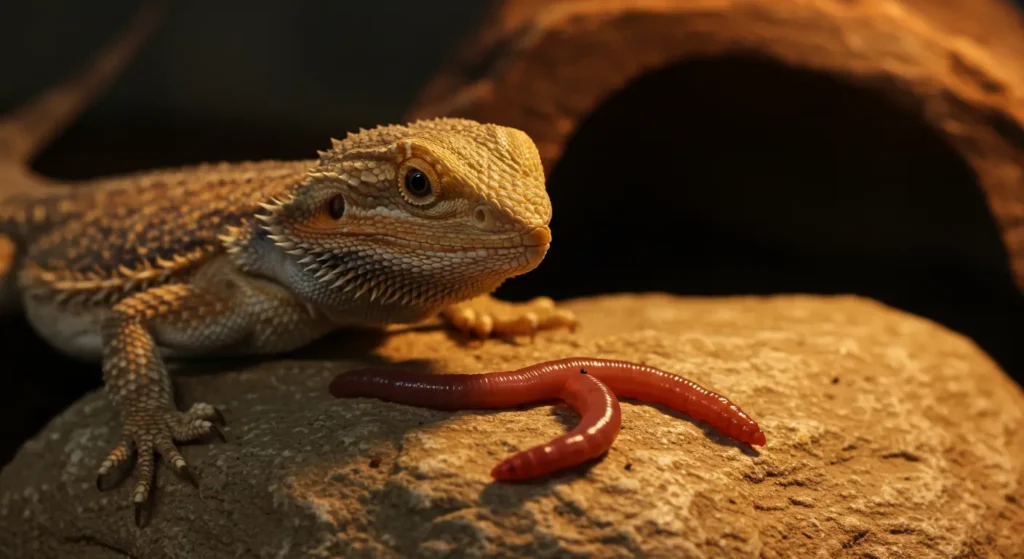
Nutritional Profile of Earthworms: Are They a Good Choice for Your Beardie?
Earthworms offer a unique nutritional profile that can complement a bearded dragon’s diet. Understanding their protein, fat, and moisture content helps you decide how to incorporate them effectively. While beneficial, earthworms should be part of a balanced diet alongside other food groups.
Protein, Fat, and Moisture Content Compared to Common Feeders
Earthworms are rich in protein, which is essential for muscle growth and repair in bearded dragons. They also contain moderate fat levels and high moisture content. Compared to common feeders like crickets or mealworms, earthworms provide a hydrating component, which can be particularly useful for dragons that don’t drink much water.
Importance of Calcium-to-Phosphorus Ratio and Supplementation Needs
A critical factor in reptile nutrition is the calcium-to-phosphorus (Ca:P) ratio. Ideally, this ratio should be about 2:1 to support healthy bones. Earthworms tend to have a lower calcium level relative to phosphorus, so supplementation with calcium powder is important when feeding them regularly. This prevents metabolic bone disease and other calcium deficiencies.
Earthworms’ Role in Hydration Due to High Moisture
The high moisture content in earthworms helps keep your bearded dragon hydrated. Since many reptiles get most of their water intake from food, earthworms can be a useful addition to increase fluid intake. This is especially valuable for dragons reluctant to drink from water dishes.
How Earthworms Complement Other Dietary Components
While earthworms provide protein and moisture, they lack certain vitamins and minerals found in leafy greens and other insects. Feeding a varied diet that includes vegetables, fruits, and a mix of insect protein ensures your beardie receives a balanced nutrient profile. Earthworms should be seen as a supplement rather than a complete food source.
How Often Should Bearded Dragons Eat Earthworms?
Feeding frequency plays a vital role in maintaining your bearded dragon’s health. Overfeeding any single food type, including earthworms, can cause nutritional imbalances. Tailoring feeding schedules based on age and health status helps avoid potential issues.
Recommended Frequency for Juveniles vs Adults
Juvenile bearded dragons have higher protein needs and can benefit from more frequent feeding of protein-rich foods like earthworms. However, adults require less protein and should have earthworms offered less often. Generally, juveniles might receive earthworms 2–3 times a week, while adults should have them no more than once a week or as an occasional treat.
Portion Control and Avoiding Overfeeding
Portion size is key to preventing obesity and digestive problems. Feed earthworms in moderation, ensuring they make up no more than 10% of the total diet. Overfeeding earthworms, or any protein source, can lead to excessive phosphorus intake and stress the kidneys.
Monitoring Digestive Health After Introducing Earthworms
Always monitor your beardie’s digestive health when adding new foods. Changes in stool consistency, appetite, or activity level may indicate intolerance or an imbalance. If adverse symptoms appear, stop feeding earthworms and consult a reptile-savvy veterinarian.
Using Earthworms as Occasional Treats vs Staple Food
Earthworms are best used as occasional treats or part of a varied insect rotation. They provide dietary enrichment and nutritional benefits but should not replace staple feeders like crickets or dubia roaches. For a complete list of safe insects you can feed your bearded dragon regularly, check out our detailed guide on What Insects Can Bearded Dragons Eat Daily? Vet-Backed Advice. This variety promotes balanced nutrition and keeps your bearded dragon engaged with its diet.
How to Prepare Earthworms for Your Bearded Dragon
Proper preparation of earthworms is essential to ensure they are safe and nutritious for your bearded dragon. This includes sourcing them responsibly, boosting their nutritional value, and following hygienic handling practices. Taking these steps protects your pet’s health and maximizes the benefits of feeding earthworms.
Safe Sources: Trusted Pet Stores or Worm Farms
The safest earthworms come from reputable pet stores or dedicated worm farms. These sources raise worms in controlled environments, reducing the risk of contaminants and parasites. Avoid collecting wild earthworms, as they may carry pesticides, bacteria, or parasites harmful to your beardie. Buying commercially raised worms ensures consistency and safety.
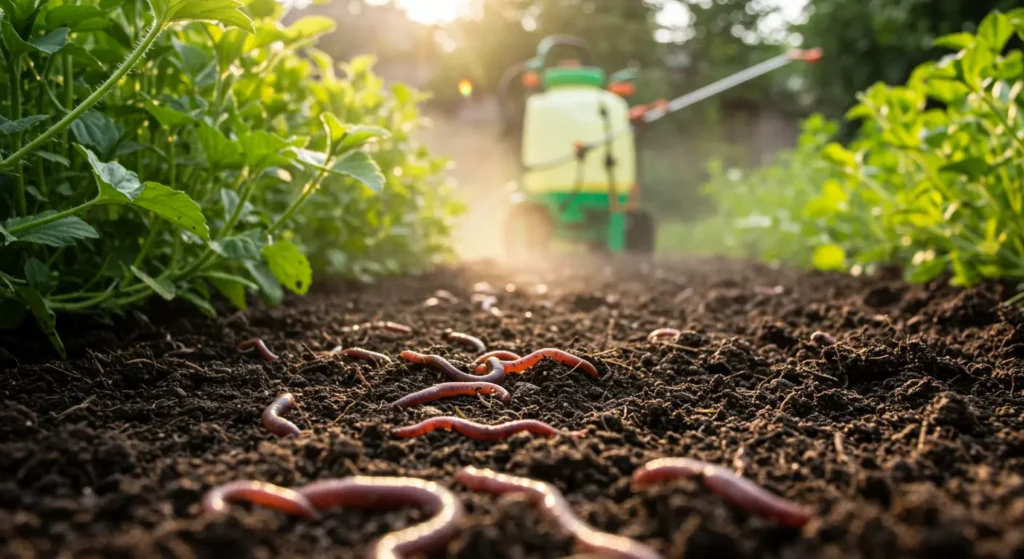
Gut-Loading Earthworms to Increase Nutritional Value
Gut-loading involves feeding earthworms a nutritious diet before offering them to your bearded dragon. This process boosts their vitamin and mineral content, making them healthier for your pet. A typical gut-loading mix includes fresh vegetables, grains, and commercial gut-load powders. Feed the worms this diet for 24 to 48 hours before serving to maximize nutritional benefits.
Cleaning and Possibly Freezing to Kill Parasites
Before feeding, rinse earthworms thoroughly to remove any soil or debris. Some keepers recommend freezing worms for 24 hours to kill potential parasites or bacteria. While freezing may temporarily stun the worms, it is an effective safety measure. Always thaw frozen worms fully and avoid feeding ice-cold worms to your beardie to prevent digestive issues.
Serving Methods: Live vs Prepared, and Handling Tips
Earthworms can be fed live, which stimulates natural hunting behavior and provides enrichment. Alternatively, some owners prefer to chop or lightly cook worms to reduce choking risk, especially for juveniles. When handling worms, wash your hands before and after to maintain hygiene. Use tongs or feeding tools to avoid accidental bites or contamination.
What Other Worms and Insects Can Bearded Dragons Eat?
Expanding your bearded dragon’s diet with a variety of worms and insects promotes balanced nutrition and keeps mealtime interesting. Understanding the differences between feeders helps you choose the best options for your pet’s health and preferences.
Comparing Earthworms with Superworms, Mealworms, and Hornworms
Superworms, mealworms, and hornworms are popular feeder insects with distinct characteristics. Superworms are larger and high in fat, making them suitable as occasional treats. Mealworms have a hard exoskeleton and lower moisture content, which can be harder to digest. Hornworms are soft-bodied, high in moisture, and rich in calcium, making them a nutritious option. Each has pros and cons compared to earthworms.
Nutritional Differences and Suitability for Beardies
Different feeders vary in protein, fat, calcium, and moisture content. Earthworms provide high moisture and moderate protein but lower calcium, while hornworms offer a better calcium balance. Mealworms are lower in moisture but higher in fat. Understanding these differences allows you to tailor your beardie’s diet to its specific nutritional needs and health status.
How Rotating Protein Sources Benefits Your Pet’s Health
Rotating insects and worms prevents nutritional imbalances and reduces the risk of developing allergies or food aversions. Offering a variety of protein sources ensures a broad spectrum of nutrients and keeps your bearded dragon engaged with its diet. Regular rotation supports digestive health and mimics the varied diet wild dragons enjoy.
Introducing New Feeders Safely and Observing Reactions
When introducing any new feeder insect or worm, start with small quantities to monitor your dragon’s reaction. Watch for any digestive issues, refusal to eat, or behavioral changes. Gradually increase portions if tolerated well. Safe introduction reduces stress and helps maintain a healthy, balanced diet.
Conclusion
So, can a bearded dragon eat earthworms? The answer is yes—when done safely and responsibly, earthworms can be a nutritious and enjoyable treat for your pet. By sourcing them from trusted suppliers, preparing them properly, and feeding them in moderation, you can enhance your beardie’s diet without risking health issues.
Remember, earthworms should complement a balanced diet that includes a variety of insects and leafy greens to meet all nutritional needs. Always observe your bearded dragon for any signs of intolerance or digestive upset when introducing new foods. With careful attention and good feeding practices, earthworms can be a great choice to keep your bearded dragon thriving.

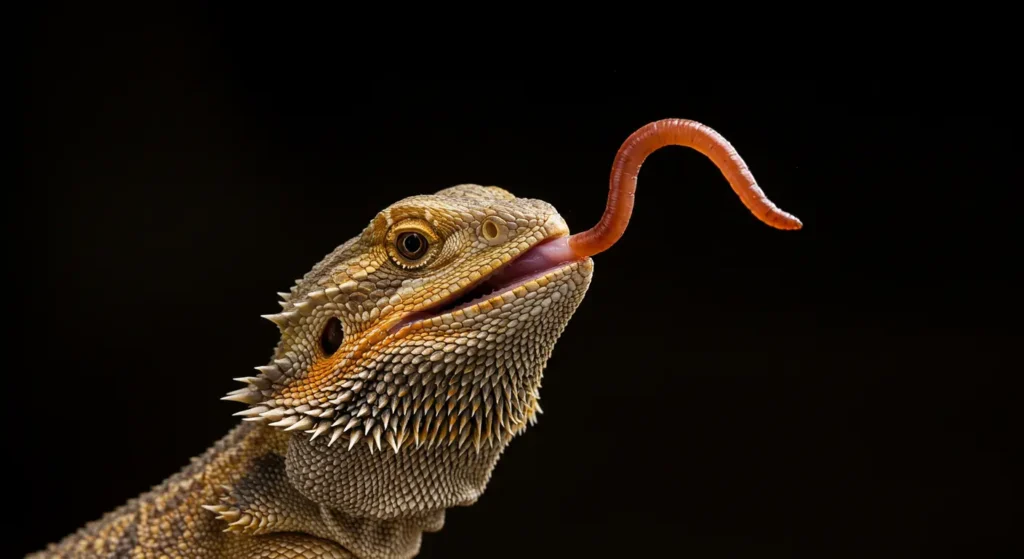
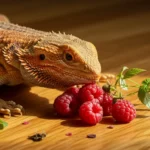
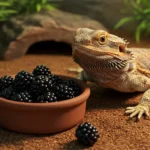
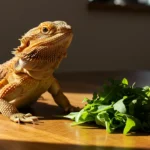
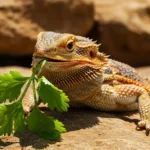
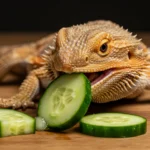
1 thought on “Can a Bearded Dragon Eat Earthworms? A Great Choice!”